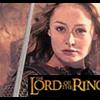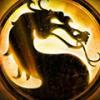I am currently studying for my associates in computer networking. I am very interested in mathematics(metaphysics?) as well though. <rant>One thing I hate is that every math class I get just teaches me a "form" or "method" to follow to pass their test. They never teach "why" or "how". </rant> All my math teachers say I am good at math, mainly because I have 102 averages in my classes, but I am basically just copying what the teacher did, and slightly altering it to fit the problem on the paper.
Anyways, I was wondering if it was possible for a human to do things like; use math to solve chess games or other complex puzzles. I want to be able to use math for more than just solving problems on paper. Get what I mean? I want the ability to be able to take math and adapt it to any complex problem and get an answer. Am I making any sense? Does anyone have any advice on what kind of math or other topics to study on my own? Or is this just a waste of time?
Thanks!
P.S. I am taking the Network+ exam at the end of this month. Any advice on that would also be appreciated





















 Sign In
Sign In Create Account
Create Account

